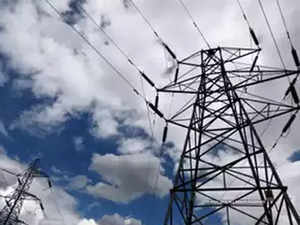 Agencies
Agencies“The government is weighing pros and cons of bringing electricity under GST,” a government official said. “We had asked NTPC and the Central Electricity Authority (CEA) to study and report the benefits and challenges. The report has been submitted to us and it shows a huge amount of savings to the end consumers.”
The report suggests that the cumulative per unit input costs will be reduced by 17 paise per unit for generation, transmission and distribution companies, as input tax credit will be available to them. "The per unit tariff to consumers would come down and benefit the power sector as a whole,” he said.
Electricity prices for Indian industries are one of the highest in the world as states charge high tariffs to subsidise agricultural and residential consumers. States also impose large levies on spot market power purchases by their industrial consumers to deter them from purchasing electricity from anywhere other than distribution companies.
All power companies have been supporting GST on electricity, citing lower tariffs to end consumers including industrial units, which in turn may boost the demand for power in the country.
“High-cost, low-quality power supply is rendering industrial units uncompetitive and adversely affecting the government’s Atmanirbhar Bharat campaign at a time when the country’s installed generation base is highly underutilised,” the official said. CEA data showed that the country's thermal power plants operated at 53% capacity in July this year against 55% a year ago.
The study shows that there will be a decline in the revenue of state and central governments due to levying of GST on electricity, but it would lead to increase in economic activity, he said.
“Viewing the benefits of inclusion of electricity in GST by way of ease of doing business and consequent tariff reduction, APP has been making representations to the government for its inclusion in GST. We welcome this development,” Association of Power Producers (APP) director general Ashok Khurana said.
At present, electricity is not subject to GST and power companies pay multiple taxes on capital goods and other inputs like excise duty, customs duty, countervailing duty, special additional duty, education cess, water cess, local area development tax, entry tax and stamp duty, besides state electricity duty. This effect increases the price of power to domestic and industrial consumers.
The 13th Finance Commission had also recommended that electricity duty levied by states should be subsumed in GST.
Download The Economic Times News App to get Daily Market Updates & Live Business News.
Read More News on
Download The Economic Times News App to get Daily Market Updates & Live Business News.









 Get Unlimited Access to The Economic Times
Get Unlimited Access to The Economic Times
